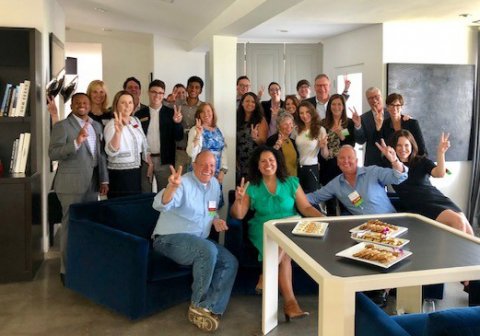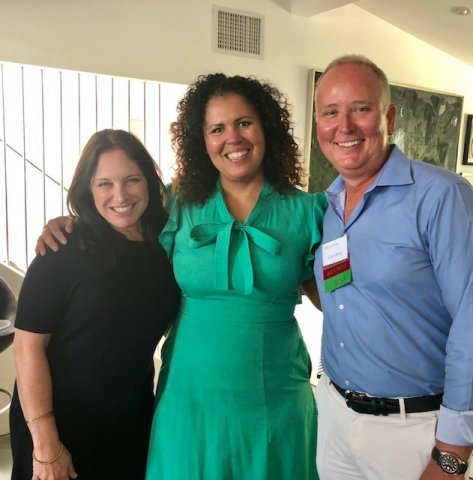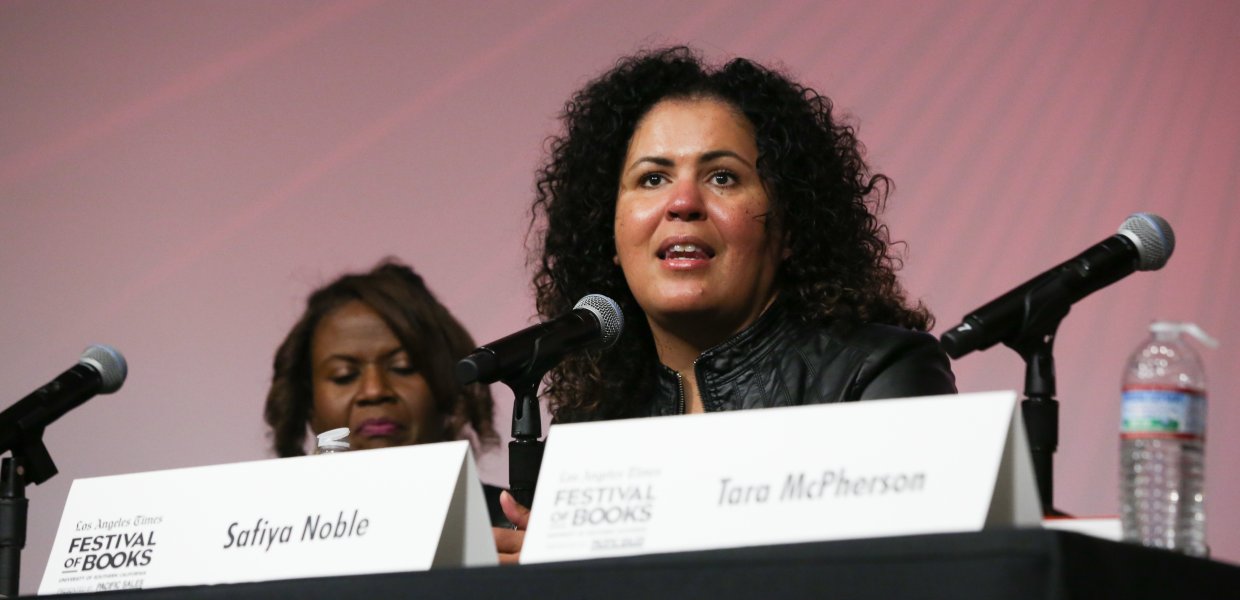“When I first started interrogating Google’s output, it was incredibly unpopular,” Safiya Noble said. “I got a lot of pushback from people in academia and people in industry who said, ‘Google is the peoples’ company.”
On May 19, Noble, assistant professor of communication, shared a glimpse into her research with a group of USC Annenberg alumni, parents and students, who gathered at the home of Corii ’89 and Cari Berg ’89, for the inaugural Ambassadors Circle Salon.

Noble was imparting lessons and key findings from her latest book, Algorithms of Oppression: How Search Engines Reinforce Racism, in which she challenges the idea that search engines such as Google offer an equal playing field for all forms of ideas, identities and activities. She also highlights the predicament of unregulated corporate ownership of the information landscape, and how problematic that is for women and under-represented groups.
“The majority of the public in the United States believes that search engines are fair and unbiased sources of information, or that search engines are simply neutral, they’re simply providing the results that are most popular or most searched on,” Noble said. “This to me means that we have to pay close attention to what’s happening in those spaces.”
Her research reveals that algorithms and coding are forms of language and, like any spoken or written language, can be subjective and open to interpretation.

According to Noble, the implications of this marginalization are profound. These insights on sexist and racist biases are important because information organizations are increasingly reliant on being displaced by a variety of web-based “tools,” regardless of political, social or economic consequences.
“We were all stupefied to learn of racial bias in coding,” Bob Gold ’80 said. “Professor Noble stunned us with her research. This was an entirely new concept to many of us, and led to an engaging and thoughtful conversation — one that I’m still having.”
Noble’s goal is that her book will get people thinking and talking about the prominent role technology plays in shaping our lives and future.
“My hope is that the public will reclaim its institutions and direct our resources in service of a multiracial democracy. Now, more than ever, we need libraries, universities, schools and information resources that will help bolster and further expand democracy for all, rather than shrink the landscape of participation along racial, religious and gendered lines.”
Named in honor of the school’s founder, Ambassador Walter H. Annenberg, the Ambassadors Circle celebrates dedicated alumni, parents and friends who make leadership annual gifts to USC Annenberg. Members of the Ambassadors Circle make possible the unique opportunities and experiences the school has been fortunate to offer its students. Supporters enjoy unique year-long opportunities for the highest level of engagement with the school, invitations to exclusive events such as the Ambassadors Circle salons, and other special member experiences.
For more information about this program or to make a gift, contact Adam Miller, assistant director of development, at (213) 740-2844 or adamm@usc.edu.
